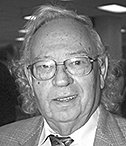When "Schindler's List" with its black-and-white format and horrifying portrayal of the terrors of the Holocaust hit the theaters in 1993, the movie brought the misery and human degradation of the Jewish extermination to the eyes of millions. Before award-winning director Steven Spielberg released his shocking historical account, he culled through the testimonies of numerous Holocaust survivors—victims, rescuers and passionate observers, trying to get an accurate scope of his subject matter, tales of countless families separated and slaughtered. First the old and infirm, then the children, followed by the adults, depending upon their state of physical fitness—all gassed with chemicals that turned their lungs to jelly; all murders rationalized in the name of eugenics and in keeping the human bloodline strong.
The personal accounts were jarring, and Spielberg said he saw the importance of their ability to keep society ever-vigilant for such atrocities. The director became the founding chairman of the Survivors of the Shoah Visual History Foundation about 10 years ago. Since then, the foundation has been working to film the personal accounts of Holocaust survivors and witnesses throughout the world before the generation that lived it dwindles away completely. The foundation has produced nearly 52,000 testimonies since the project began.
As the world recently celebrated the 60th anniversary of the end of World War II, the foundation brought the fruits of its labor, more than 20 English-language testimonies of Holocaust survivors, to the Jackson-Hinds Library System for public viewing. This fall, the foundation will enlist educational site coordinator Jamie Holcomb to push for educational outreach to Jackson's middle and high schools. The initiative has its sights on 16 other cities. Jackson is the inaugural site.
"We felt that the area was very receptive when we approached them to place a visual history testimony collection," said Steven Klappholz, vice president of development for the foundation. "It's also an area that we felt did not have as many resources as some of the larger, urban city in terms of visual history testimony of Holocaust, anti-tolerance-based education."
Holocaust survivor Gilbert Metz attended the presentation at Jackson's Eudora Welty Library and described a few of his memories from a concentration camp at Dachau. Metz, who was 15 when he was forced to relocate to the Nazi extermination factory, recounted tales of inhuman coldness, such as one Nazi soldier's soulless reply to children's inquiry about the whereabouts of their parents.
"'See that black smoke coming up out of the chimneys up there?' the man said. 'Well, that's your parents. And when you are turned into smoke going out those chimneys, you'll be with them again,' was what he said. And I just could not understand at first what he was saying. The realization was too horrible to grasp," Metz said, blazing with the fury of memory.
Metz said he harbors no bitterness with either God nor the modern generations of Germany, but said he feared a similar atmosphere of intolerance—the same kind that eventually evolved into the Holocaust—is gaining momentum in American politics.
"You see it in Congress today. You see it in Washington as people sit across from each other as enemies. We have to see this coming. We must not tolerate intolerance. That has always been the beginning stage," Metz said, citing examples such as recent antagonism to homosexuality and the poorer class.
Klappholz said that the visual-history collection could be put to good use in helping today's young people recognize intolerance when they saw it, but added that America is regularly making a habit of ignoring full-blown genocide even at this very minute.
"Tragically we're not at a loss for learning about genocide and holocaust," Klappholz said, referring to the mass genocide orchestrated by Pol Pot and the Khmer Rouge in the 1970s, the slaughter of almost a half million Tutsis in Africa and today's full-scale genocide of black Africans at the hands of the Sudanese government. "Have we learned a lot in 60 years? In some ways we have, but in other ways we seem to be ignoring genocide in our very midst."



Comments
Use the comment form below to begin a discussion about this content.